Affiliate links on Android Authority may earn us a commission. Learn more.
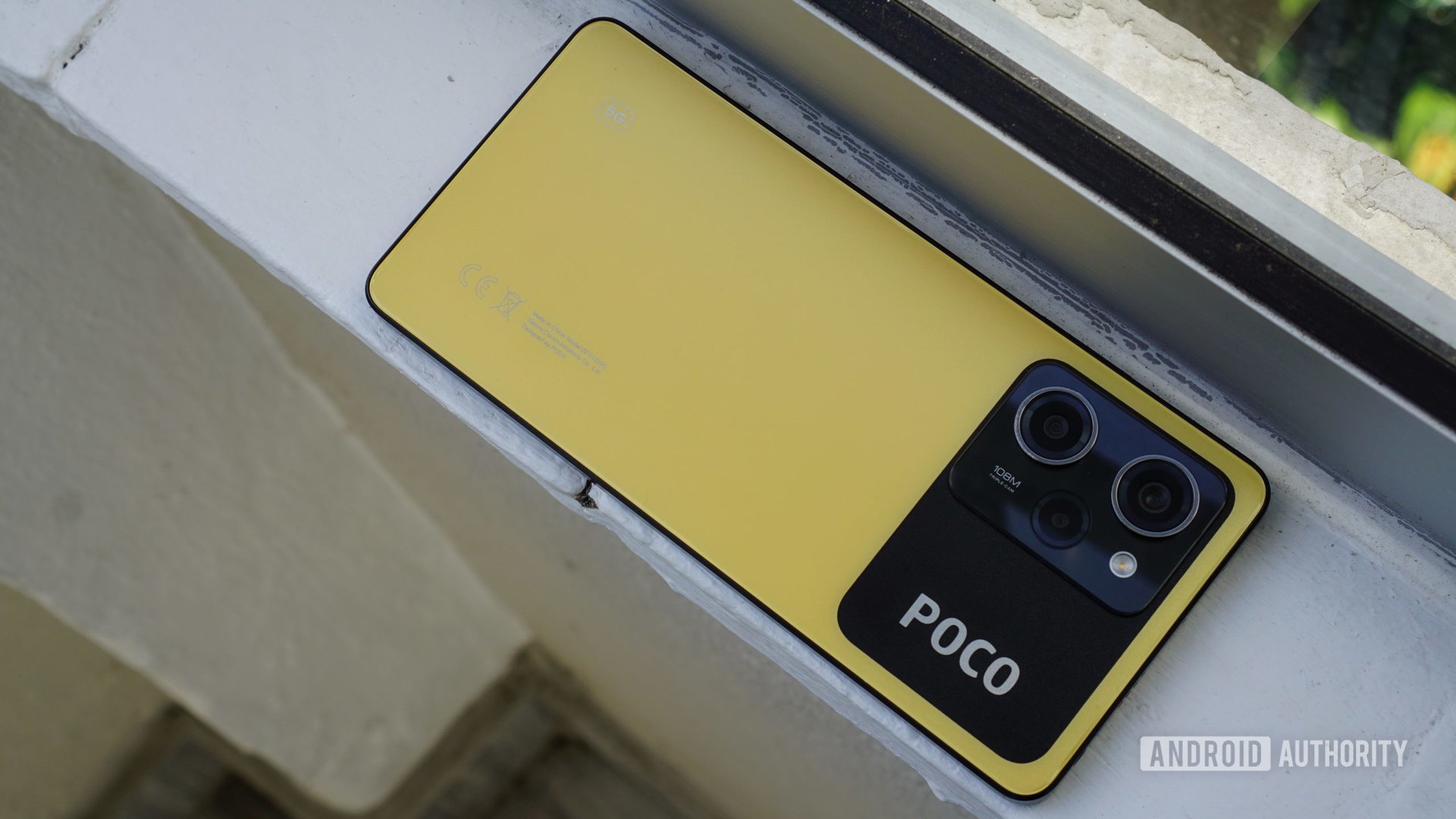

POCO X5 Pro review: Upping the budget ante
Published onFebruary 6, 2023

Poco X5 Pro
What we like
What we don't like

Poco X5 Pro

The POCO X5 Pro is the latest budget Android phone in the Xiaomi sub-brand’s X series. 2021’s POCO X3 Pro delivered a ton of horsepower and little else, while 2022’s POCO X4 Pro offered plenty of upgrades but a major performance downgrade. So do you get the best of both worlds with the follow-up? It’s time to find out in our POCO X5 Pro review.
What you need to know about the POCO X5 Pro
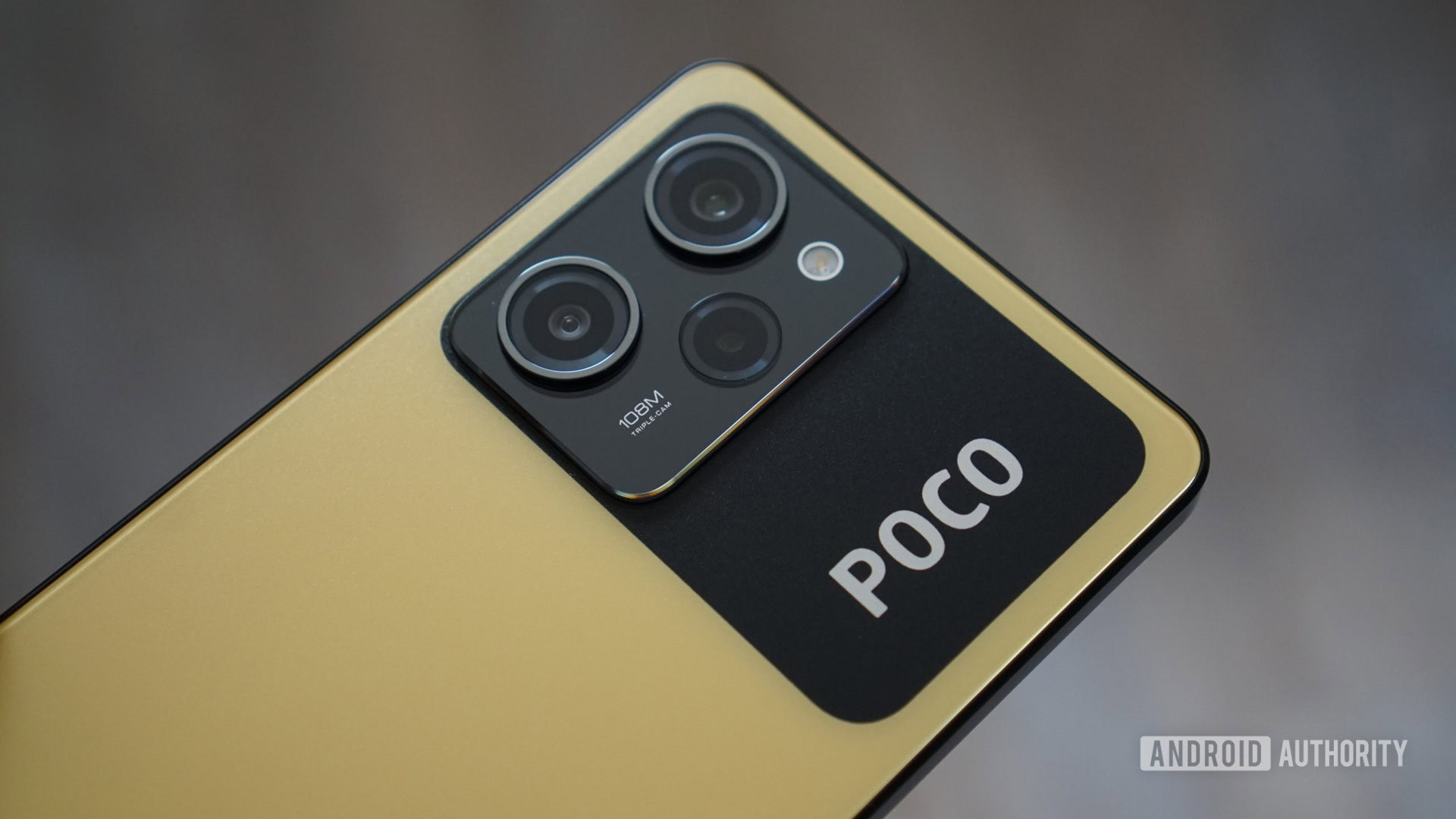
- POCO X5 Pro (6GB/128GB): $299
- POCO X5 Pro (8GB/256GB): $349
The POCO X5 Pro is a follow-up to the POCO X4 Pro, and the Xiaomi sub-brand is taking the same approach as last year’s phone. That is, you’re looking at a rebadged version of the China-only Redmi Note 12 Pro Speed Edition, much like the POCO X4 Pro was a rebranded Redmi Note 11 Pro 5G with a fresh coat of paint.
There aren’t many upgrades from the POCO X4 Pro to the X5 Pro at first glance, but the biggest change is undoubtedly the switch from the middling Snapdragon 695 SoC to the more capable Snapdragon 778G chipset. So budget-conscious mobile gamers should be happy on paper. The POCO X5 Pro also hangs on to a few increasingly rare features such as a fast and accurate, side-mounted fingerprint reader, a 3.5mm headphone jack, and an IR blaster for controlling legacy appliances. It does, however, lose out on expandable storage as unlike it’s predecessor the POCO X5 Pro does not have a microSD card slot.
The POCO X5 Pro starts at $299 for the 6GB/128GB model, with an early bird price of $249 (there’s no word on Euro pricing). Expect to find it in Black, Blue, and Yellow colorways. The phone will be available in Asia-Pacific, Africa, Europe, parts of Latin America, and the Middle East. Unfortunately, you’ll have to import this device if you’re in North America as it’s not available there.
What’s good?
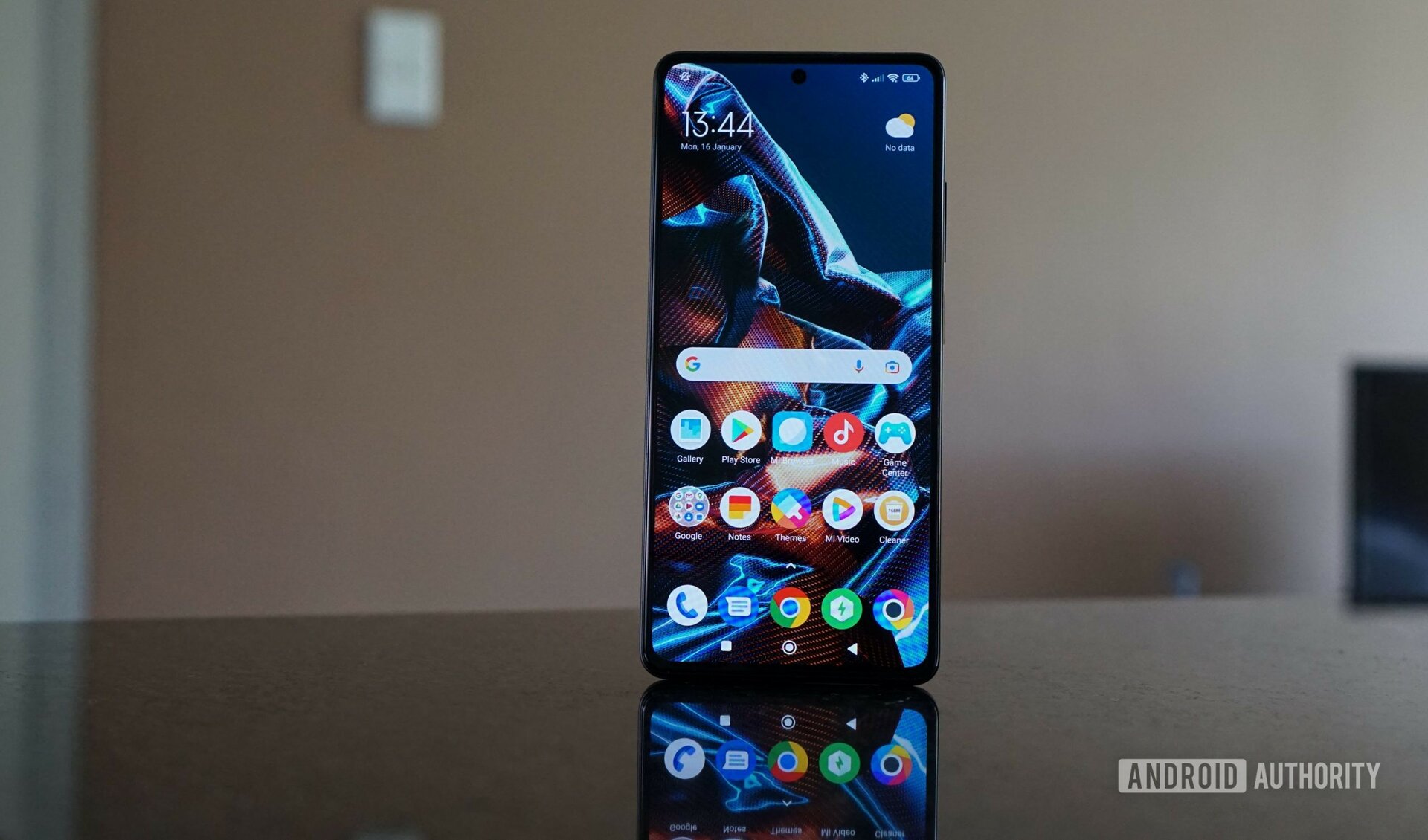
Unbox the new POCO phone and the first thing you’ll notice is just how light and thin it is. POCO says it’s the slimmest X-series device around, at 7.9mm thickness, which isn’t all that different from the older phone. But the ~20g weight reduction is certainly noticeable when coming from the X4 Pro.
You’ve got flat, plastic edges and a plastic back here too. Those expecting a metal and glass slab might be disappointed, but the use of plastic means the rear cover won’t spiderweb if dropped. Our review unit is a Yellow model, featuring a yellow back and yellow power button. The rear cover is more of a golden yellow color scheme as opposed to banana yellow, but it’s still a refreshing departure from the sea of grey and black colorways.
Those looking for a thin and light affordable smartphone, the POCO X5 Pro might be for you.
I’m also glad to see that the plastic back isn’t a fingerprint magnet at all. Furthermore, the POCO X5 Pro offers IP53 dust and water resistance, which is always welcomed in the budget segment.
Hold the power button and you’ll be greeted by a great 6.67-inch 120Hz OLED screen. It’s not the brightest, measuring in at a peak of 900 nits, but I had no issues in direct sunlight and it compares favorably to other budget handsets. The phone also lets you choose between 60Hz, 120Hz, or a dynamic refresh rate. The latter only switches between 60Hz and 120Hz rather than dropping down to 30Hz or 24Hz. In any event, you’re still getting a great viewing experience for the price.
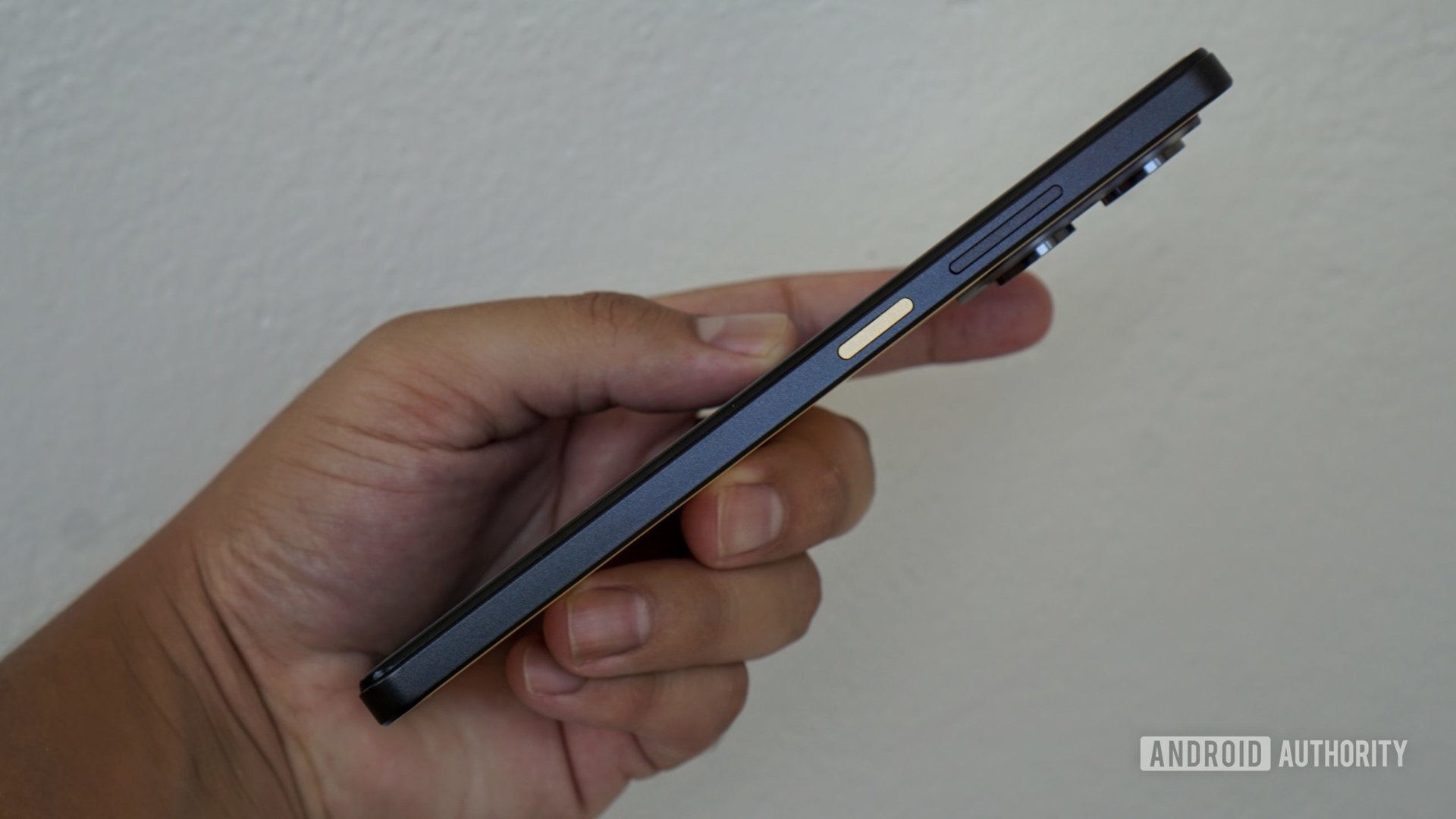
The POCO X5 Pro is also bringing the Snapdragon 778G chipset to the table, and this is a major step up over the X4 Pro’s Snapdragon 695 processor. Geekbench scores see an increase over the older phone, with multi-core CPU scores showing a massive leap. Meanwhile, GFXBench and 3DMark scores show a significant increase in GPU power over last year’s handset. These scores are some way off the Snapdragon 870-toting POCO F4, let alone recent flagship phones, but it still bodes well for the device’s performance well into the future.
Fortunately, this silicon upgrade bears out in real-world usage too. Basic tasks like launching apps, multitasking, and scrolling in general were a smooth experience in our testing. The phone also handled 3D gaming quite well. Genshin Impact ran at 60fps for the most part on low settings, while Call of Duty Mobile ran at maximum graphics and max frame rates too. It’s even viable for GameCube and PS2 emulation, although you’ll definitely see some slowdown in more demanding games like Burnout 3 or Shadow of the Colossus. It’s not a faster experience across the board as the X5 Pro still takes one and a half to two seconds to process full-res 108MP shots, but that will be a fringe use case for most people.
This horsepower upgrade doesn’t come at the expense of battery life, either. POCO’s handset is equipped with a 5,000mAh battery, and I was able to get over nine hours of screen-on time across two days of moderate usage. This usage consisted of several hours of YouTube playback, downloading and playing Genshin Impact, and browsing Reddit. Otherwise, more typical days consisting of some Telegram messaging, browsing Reddit, watching videos, and playing various games yielded over eight hours of screen-on time and just over two days of usage. That’s impressive right there.
What’s not so good?
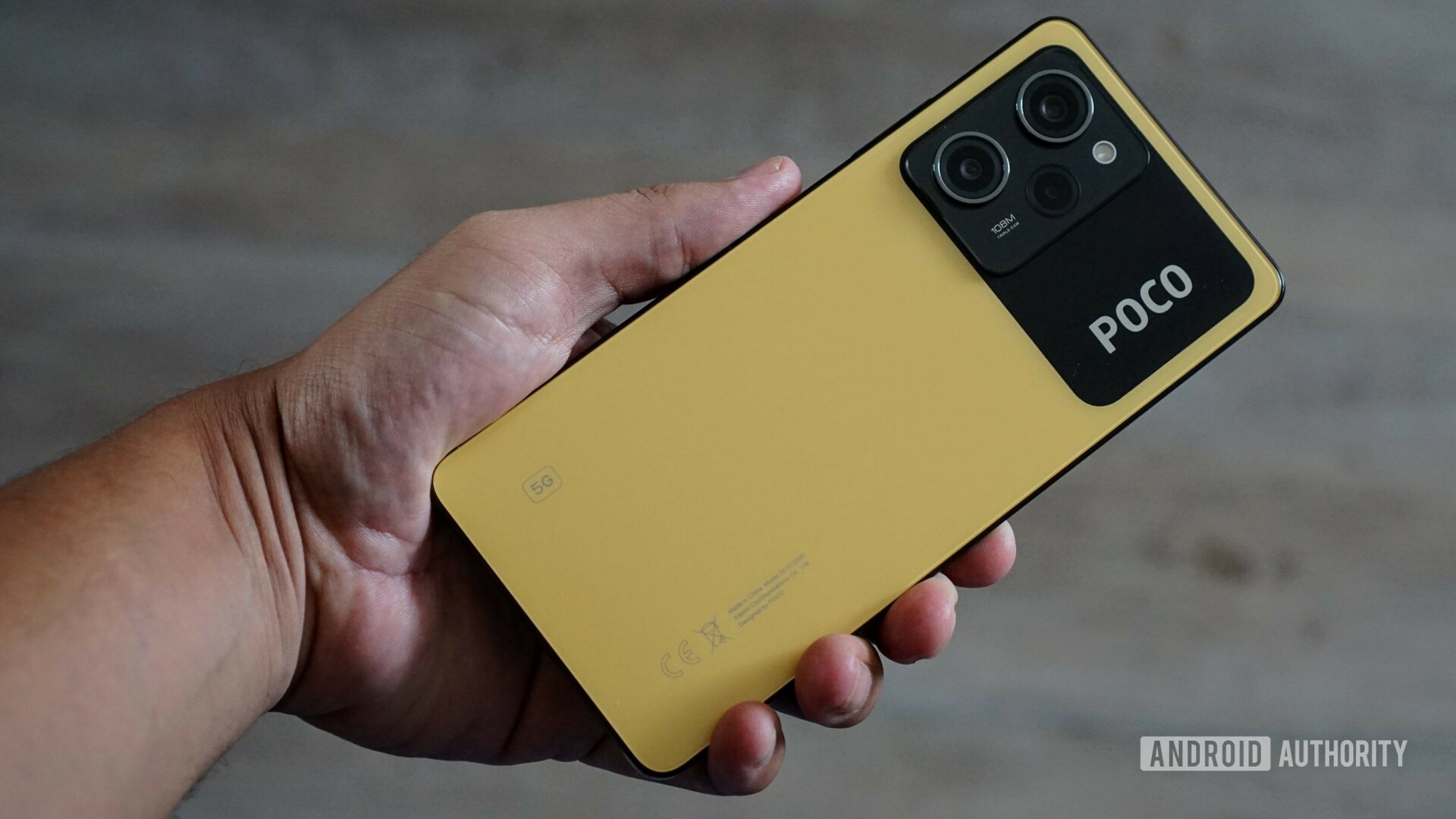
Poco’s latest device passed with flying colors when it came to hardware, but software is another story altogether. Perhaps the biggest issue is the amount of bloatware on board. Out of the box, I counted seven pre-installed games on the POCO X5 Pro (including Solitaire, Bubble Shooter, and Genshin Impact), as well as extra apps like Facebook, Netflix, WPS Office, Opera Mini, and TikTok. Granted, these apps can be uninstalled, but you know what’s better? Not having them in the first place.
The POCO X5 Pro also ships with MIUI 14 for POCO, albeit atop Android 12. That’s another disappointing decision as Android 13 has been out for over four months already.
Making things worse is the fact that POCO hasn’t issued an update commitment for the device. Even Samsung’s Galaxy A14 5G — a phone that retails for less than $200 — serves up two major OS updates and four years of security patches. For what it’s worth, 2021’s POCO X3 Pro launched with Android 11, is now on Android 12, and is reportedly set to get Android 13/MIUI 14 in the near future. At least I didn’t experience any ads during my time with the device, but your region might differ.
It’s not all sunshine on the hardware front, either. The phone offers noticeably imbalanced sound from the stereo speakers, with the downward-firing speaker offering much louder sound than the top speaker.
Poco’s handset also brings the same low-quality secondary rear cameras we’ve seen on cheap Xiaomi phones for years now. But more on that below.
POCO X5 Pro camera review
Take a glance at the camera specs and you’ll be forgiven for thinking you’re looking at the POCO X4 Pro. We’ve got a virtually identical rear camera system on the X5 Pro, namely a 108MP main camera, 8MP ultrawide shooter, and 2MP macro lens.
Unfortunately, we notice the same drawbacks as the previous phone when it comes to the secondary cameras. Shots from the 8MP ultrawide camera offer more saturated colors than the already vivid images from the main camera, as well as noticeably soft corners. You’ll even see visible noise in broad daylight, such as in the blue sky and in shadows. Meanwhile, the 2MP macro lens might as well be a 2MP watercolor camera owing to the extremely splotchy, low-res images.
The POCO X5 Pro has a solid main camera, but the supporting cast disappoints.
Thankfully, the 108MP main camera does a great job in most conditions. The default 12MP shots — pixel binned from 108MP — generally look great during the day, delivering saturated colors, a good level of detail, and minimal noise. It’s not flawless, though, as I’ve noticed some obvious fringing in scenes with strong HDR (check out the top of the cat’s head in the gallery above). Lens flare also rears its head in some situations, and occasionally the saturation levels are dialled up a bit too high. It’s also worth noting that portrait mode often results in blown-out backgrounds, but overall this is a solid budget camera phone for shooting in decent light.
Switch to low-light conditions, and the primary camera sees a major drop in image quality. The night mode does a serviceable job of raising the brightness, but noise levels still leave us wanting. Check out the comparison below.
You’ve also got the ability to shoot at a full 108MP resolution, indeed delivering more detail in daytime conditions. However, these full-resolution shots are also prone to elevated levels of noise, particularly in darker areas of the scene. 108MP shots also seem to suffer from blown highlights more often than the 12MP shot, presumably due to POCO not offering HDR in this mode. Still, there were times when I felt the 108MP shot was well worth it, with the sea shell shot in the gallery above delivering way more detail than the 12MP version. Check out the cropped comparison below for a closer look.
The POCO X5 Pro delivers respectable (if occasionally soft) selfies, although portrait selfies are prone to numerous depth errors even in ideal conditions. Switching to video, we’re glad to report that the phone indeed offers 4K/30fps and 1080p/60fps modes, which were missing from the POCO X4 Pro. There’s also a super steady video mode for those who need stability above all else, but we would’ve loved to see this mode topping out at 60fps.
Other notable camera features include a long exposure suite of modes (e.g. starry sky, light painting), vlog mode, timelapse option, short video mode, and a pro mode (complete with exposure verification and focus peaking).
You can check out our full-resolution camera samples in this Google Drive folder.
POCO X5 Pro specs
| POCO X5 Pro | |
|---|---|
Display | 6.67-inch AMOLED FHD+ 120Hz refresh rate 240Hz touch sampling rate |
Chipset | Qualcomm Snapdragon 778G |
GPU | Adreno 642L |
RAM | LPDDR4X 6/8GB |
Storage | UFS 2.2 128/256GB No microSD card slot |
Battery | 5,000mAh USB-C 67W charging |
Cameras | Rear: 108MP standard 8MP ultrawide 2MP macro Front: 16MP |
Audio | 3.5mm headphone jack Dual speakers |
Software | MIUI 14 for POCO Android 12 |
Durability | IP53 splash resistance |
Colors | Black Blue Yellow |
Dimensions and weight | 162.91 x 76.03 x 7.9mm 181g |
POCO X5 Pro review: The verdict
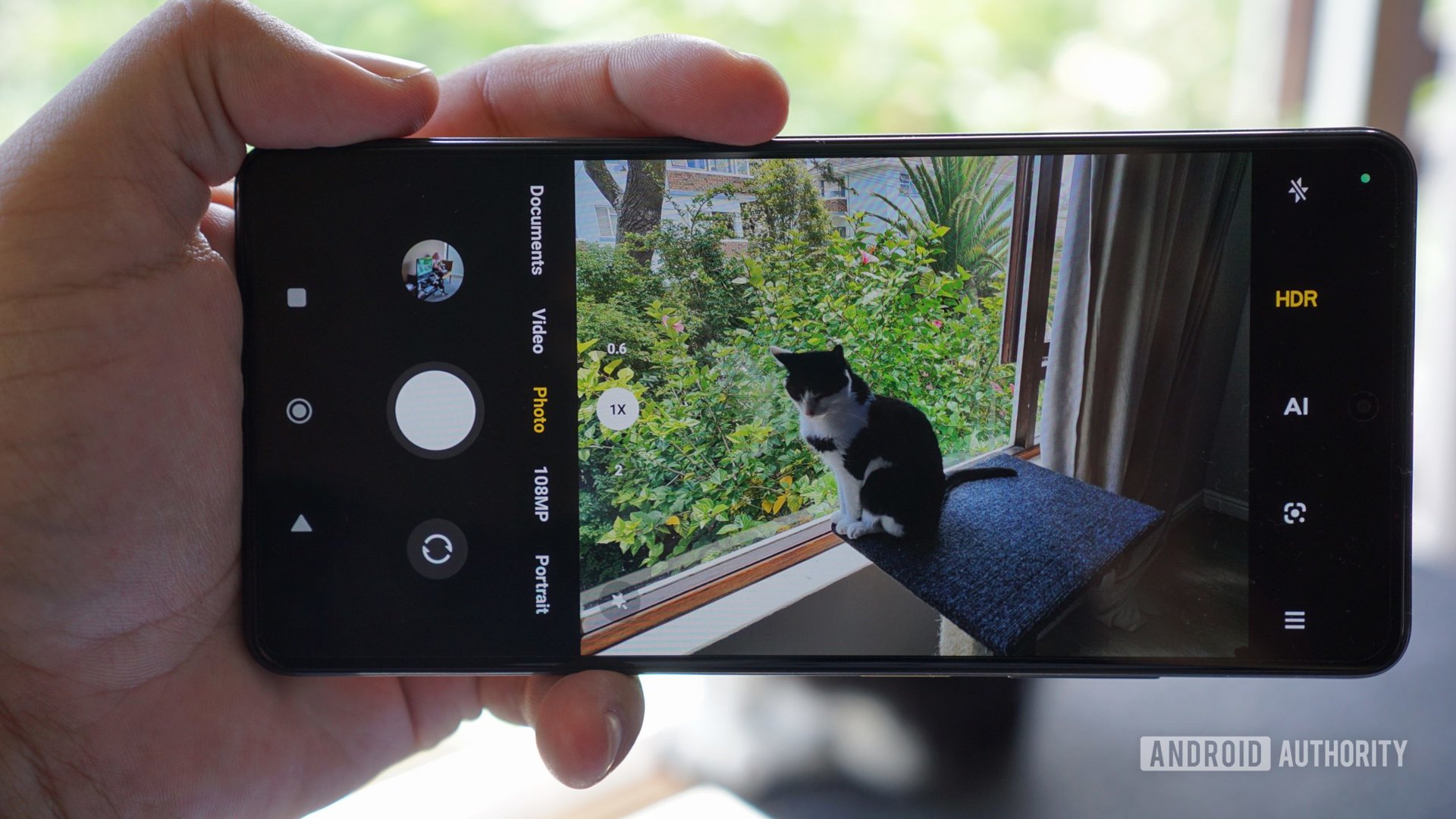
The POCO X5 Pro offers relatively few upgrades over the POCO X4 Pro, but this isn’t necessarily a bad thing. The company fixed two of our biggest complaints about the older phone, namely the rough software and distinct lack of horsepower. Fortunately, POCO retained features like that great screen, big battery, solid main camera, and relatively fast wired charging. It all comes together to deliver a well-rounded budget phone for the most part, especially if you nab it at the $249 early bird price.
We say “for the most part,” because the budget nature of the device makes itself known via those below-average secondary cameras, the older version of Android, bloatware, and the silence regarding a software update commitment.
The POCO X5 Pro is a well-rounded budget Android phone that ticks loads of boxes for the price.
Even with those grumbles, the POCO X5 Pro stacks up well to the competition. The most prominent rival will be the Samsung Galaxy A23 5G ($299 at Amazon). Samsung’s phone offers less horsepower, slower wired charging, and a lower resolution main camera. But you’re still getting a sizable 120Hz OLED screen, a large battery, and, best of all, Samsung promises four major OS updates, beating POCO by a country mile.
If you’re willing to spend a little extra, the OnePlus Nord 2T ($389 at Amazon) is worth a look. Your extra cash gets you plenty of processing grunt, faster 80W wired charging, and a flagship-level 50MP main camera. In saying so, the phone also brings a smaller battery, 90Hz refresh rate instead of 120Hz, and no IP rating.
Finally, those who don’t care about performance beyond basic functionality might want to consider the POCO X4 Pro ($325 at Amazon). It’s effectively identical to the X5 Pro bar the chipset upgrade, bringing a similarly great screen, that 108MP main camera, and a big battery with fast wired charging.


Top POCO X5 Pro questions and answers
The POCO X5 Pro has an IP53 rating for splash resistance.
Yes, the POCO X5 Pro has NFC, though POCO cautions that this might vary by market.
Yes, the POCO X5 Pro supports sub-6GHz 5G.
The POCO X5 Pro offers dual nano-SIM support.